Together As One: From Prestigious to Personal
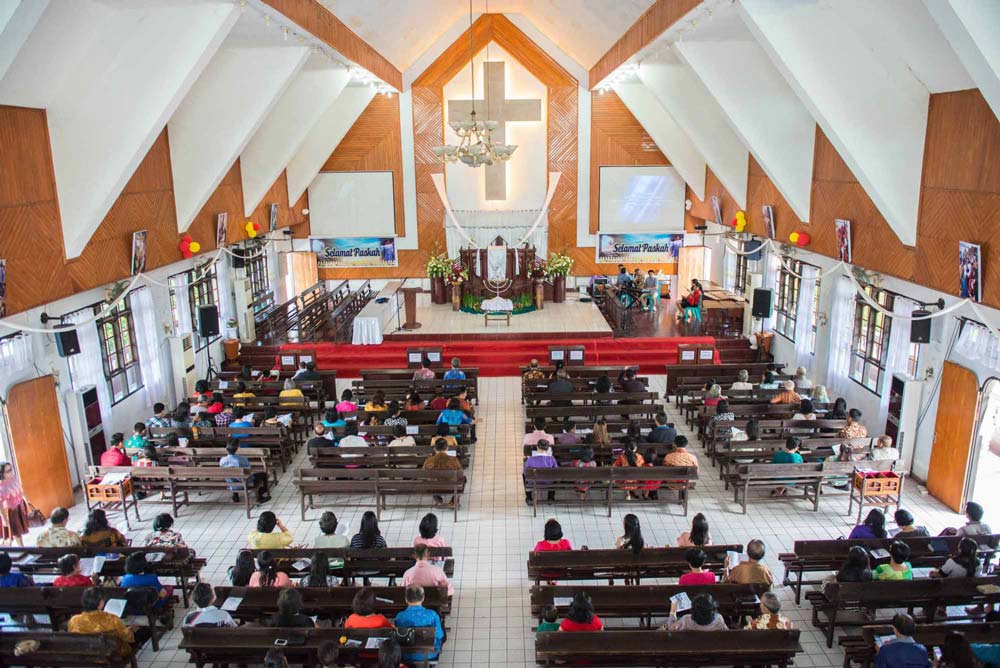
In Indonesia, Sunday morning is a ceremonious event.
Kids, parents, grandparents, aunts and uncles file into the church in their Sunday best and seat themselves before a larger-than-life podium. It’s solid wood, carved with ornate designs and topped with fabrics and floral arrangements. The pastor enters, draped in robes, and steps up into the podium overlooking the congregation.
He preaches from the Bible in Indonesian — a formal language that commands respect in this moment, but that no one will use again when they leave here — just the way he was trained to do, and the way his pastor did before him.
The congregation stirs in their seats, flipping through the liturgy (also written in Indonesian) or using it to fan themselves absentmindedly. A grandmother pulls out her phone and snaps a selfie with her fidgeting grandbaby. They dutifully stand to sing a hymn together and sit again.
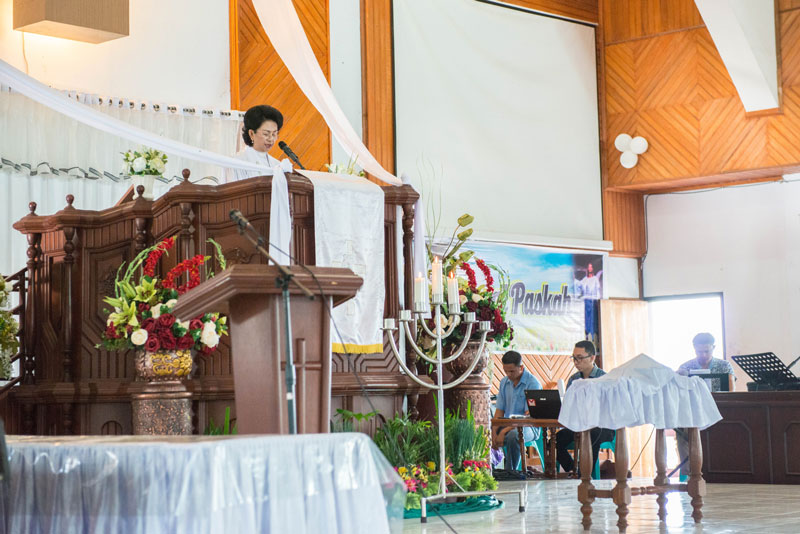
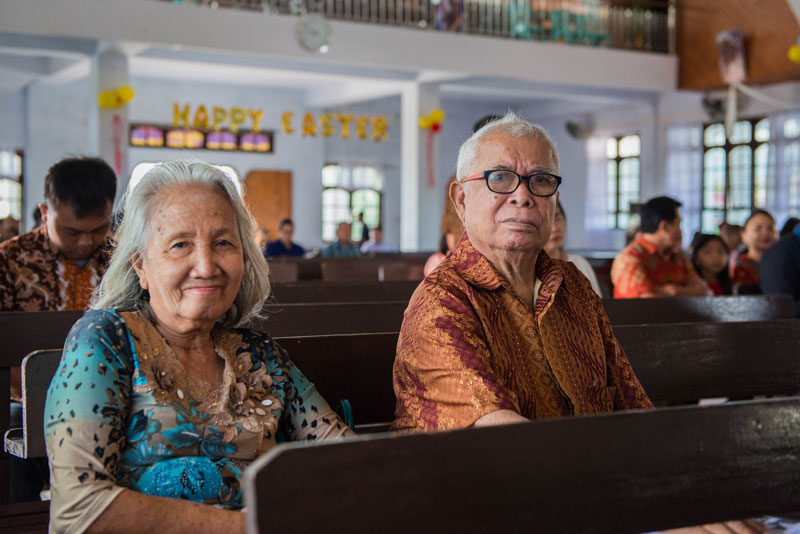
They come. They go through the motions. They leave. For many, this is how church has been done for decades. But thanks to Bible translation, a fresh wind is stirring.
Thinking About Language Differently
“Historically, Indonesian was emphasized as the language to be used in education, government and religion,” said Jon Richards, Wycliffe USA’s eastern Indonesia partnership facilitator. “This was primarily done to create national unity across Indonesia.
“The use of ... local languages was not encouraged and was even discouraged in some contexts. However, this trend of using only Indonesian is beginning to change.”
Today Bible translation teams are hard at work across Indonesia to help people think about language differently. They’re bringing the Scriptures into the local languages people use at home and relate to most.
On Ambon Island, one translation team has almost finished translating the entire Ambonese Malay New Testament.
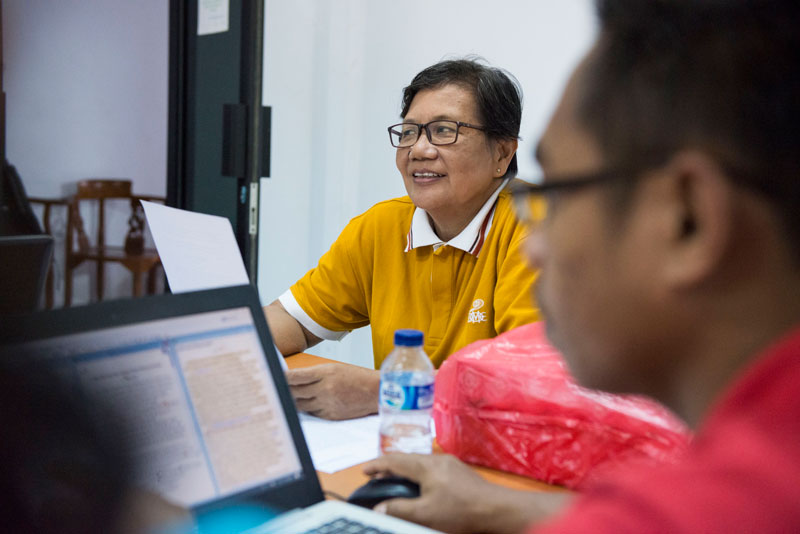
Jon’s wife, Stephanie, leads the Ambonese Malay team. They’ve been talking with pastors in the area about the idea of preaching and reading the Scriptures in Ambonese instead of Indonesian. It was difficult for most to imagine, both because of the historical precedent and also because all of their training and experience is based on communicating in Indonesian, creating a long-standing habit.
But Stephanie and her team challenged this. What if sermons were given in simple, everyday language, and the congregation understood them clearly? What if talking to God and reading his Word could be personal? What if you could do it as naturally as though you were talking to your earthly dad? It seemed far-fetched, but gradually more and more pastors have been willing to try this approach, and the results speak for themselves.
“Quite a few churches have started using the Ambonese Malay Scriptures and Ambonese Malay liturgy, and getting used to praying in their language,” said Carrie Beckley, a translation facilitator for the Ambonese Malay team. “I’ve heard of people actually sitting on the edges of their seats listening to pastors preaching in Ambonese from the Ambonese Scriptures.
“The culture here is that when you’re praying, you pray in Indonesian,” added Dave Saxby, also a consultant.
“But you can see the emotion that people feel when they’re praying in the same language that they would speak to their mom or dad at home.”
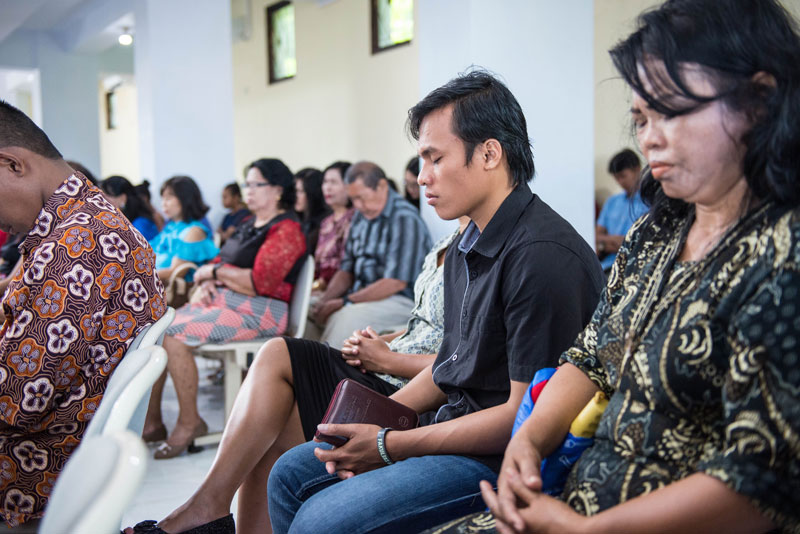
And the impact isn’t just for the congregations, but for the pastors too.
“For true spiritual growth and development, you need to use a language people understand,” said Pastor Athes Werinussa, chairman of the Protestant Church of Maluku synod. “If I use Ambonese or another local language, I get goosebumps. For me, it’s a spiritual experience.”
Leading From the Heart
In this collectivist society, Indonesians place a lot of importance on what they can contribute to their community. If a person does something shameful, for example, it brings shame on the whole family. If someone does something good, it reflects well on the whole family.
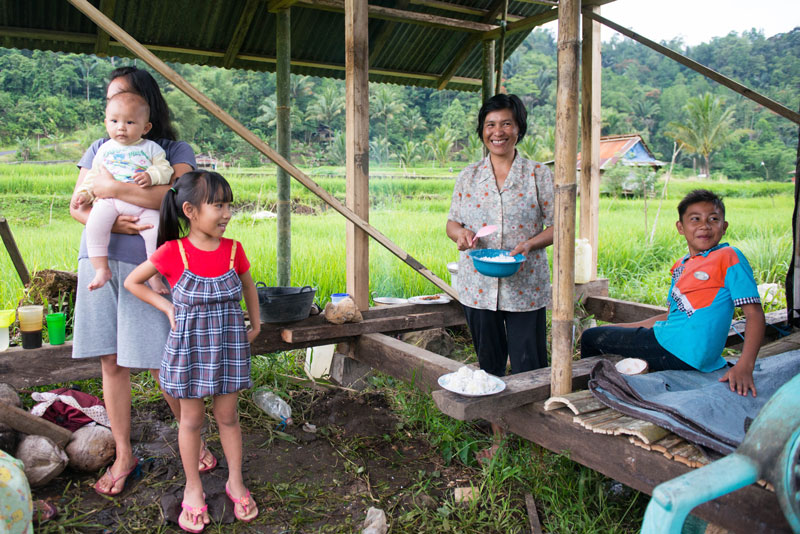
“They’re very group-focused. Their lives and their personal identities are oriented around, ‘Who am I within the context of the group? Who’s my family, who are my relations, who are my connections?’ Status is a very important issue that comes into play as well,” Jon said.
One of the highest statuses you can earn is that of a pastor.
Some Indonesians become pastors not necessarily because they feel called, but because it’s considered a prestigious position and because it’s believed that this kind of job pleases God.
When Yanti Karundeng became a pastor many years ago, she thought it was her ticket to heaven. “I thought that if I went into theology school, that all my sins would be forgiven,” she said.
She’s a Manado Malay speaker and, even though she’d been through seminary and had already been a pastor for several months, she didn’t realize she actually wasn’t a believer until she heard the gospel preached in her language.
“I was serving people in the church, I was preaching, I was doing all the activities that a pastor does, but I still didn’t have Jesus as the Lord of my life,” she said.
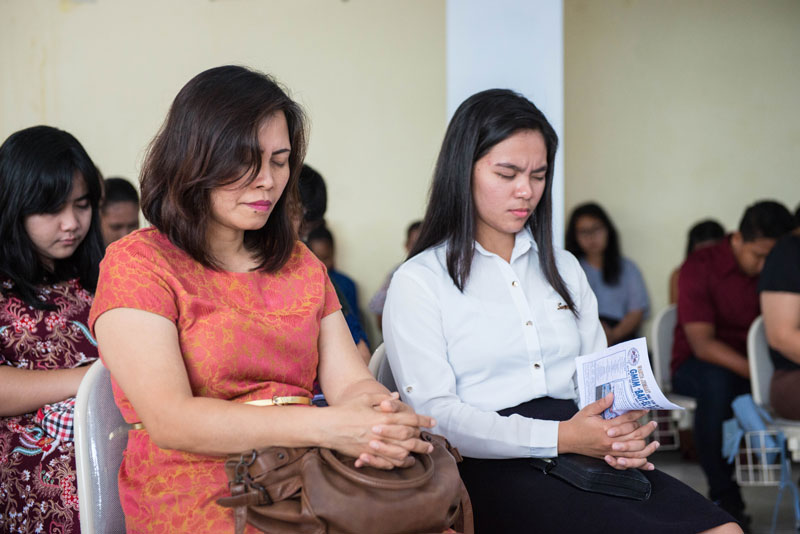
Yanti recalls the day she attended a seminar where her uncle was preaching: “My uncle said if you want to become a true servant of God, where you’re leading people to Christ, you have to surrender yourself first, and then you can help others. I felt something come upon me where it was my time to do something. I needed to respond to the call of Jesus. So I went forward, I knelt down and I received the Lord.”
She went to her congregation and humbly told them what she’d discovered. From that point forward, she preached from her heart.
“At one point, when I was preaching in the Manado language, there was somebody who was listening to my sermon and started crying. Afterward, I helped lead him to Christ,” Yanti said.
“Ever since then, I’ve realized that having the Manado Malay translation really opens it up for the Manado people to understand what God is saying to them.”
Discovering the Scriptures
Now Yanti also serves on the Manado Malay Bible translation team. Like the Ambonese Malay team, they are finding ways to help local speakers see the value of their language and engage with the Scriptures in meaningful ways.
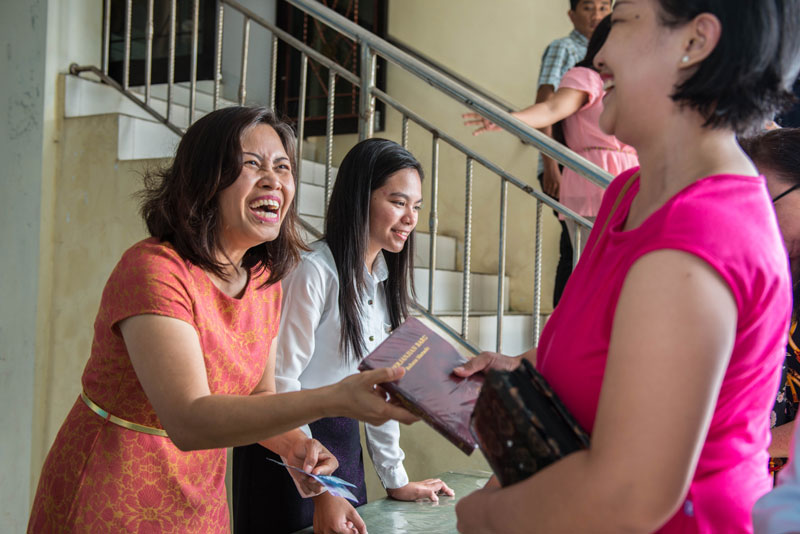
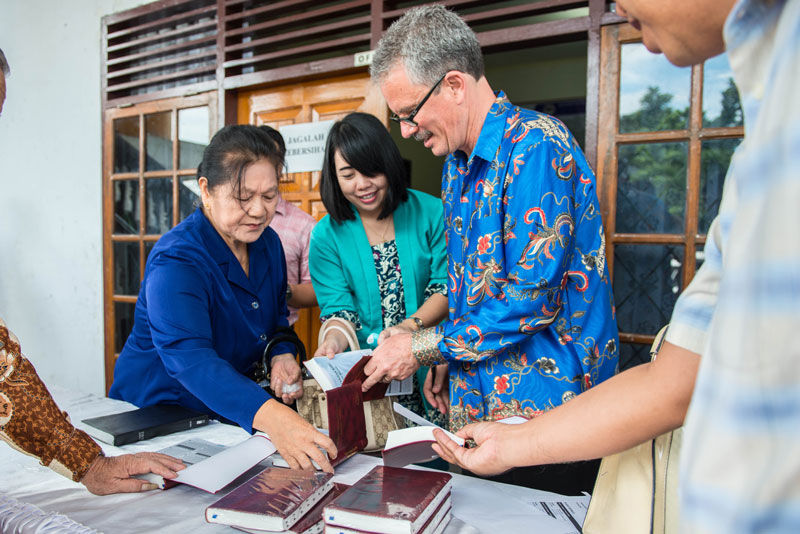
Ron Whisler, a Wycliffe USA translation advisor in Indonesia, is part of the team that is trying to change the way locals regard their Bibles.
“We didn’t see anybody reading their Bible for just the joy of reading the Bible,” he explained. “They might take the Bible to church as something they’d use as the sermon was happening, but it wasn’t affecting their lives. We didn’t see anybody engaging God’s Word for personal growth.”
Since Indonesians are most comfortable engaging in groups, a group Bible study seemed like the perfect solution. The Manado Malay team introduced Discovery Bible Studies, and they took off.
“Discovery Bible study, in its simplest form, is a group of people sitting in a circle with a Bible in their lap or in their hands, reading,” said Ron. “They often go around and each read a verse. Then there’s questions: ‘What is God teaching you in this passage?’
“‘What is a verse in this section that touches your heart?’ ‘Who will you share this with today that needs to hear this passage of Scripture?’ There’s no pressure to answer right, it’s just engaging the Word, letting God speak to you and learning from His Word.”
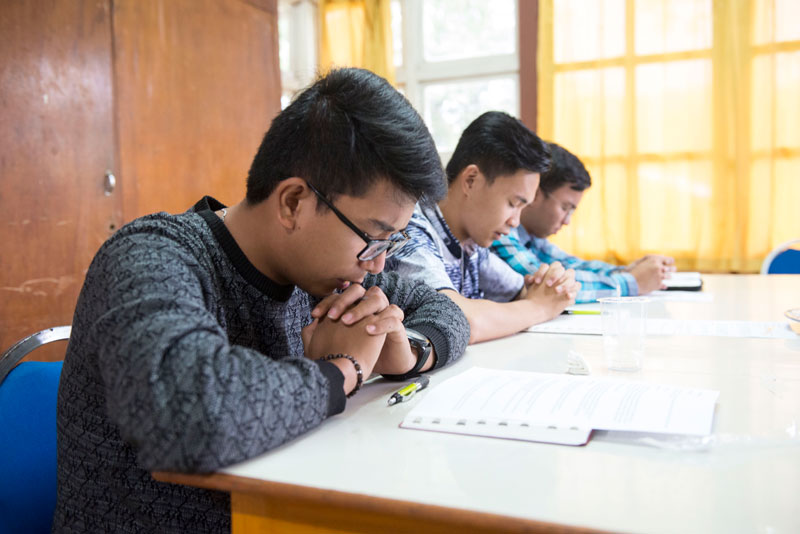
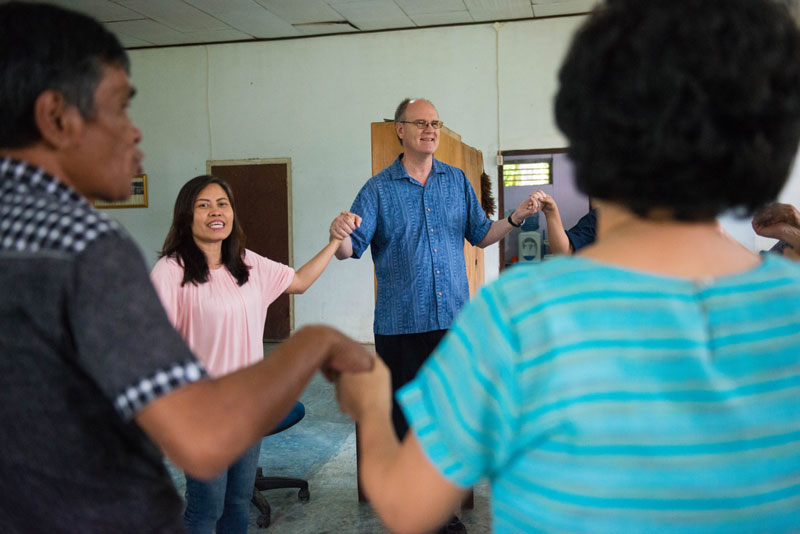
Participants are challenged to take what they’re learning and share it with others who might not understand the Scriptures yet, and as a result the Bible studies have spread. Today there are dozens of Discovery Bible Studies happening throughout the Manado region.
Yanti has noticed a big impact in Manado Malay churches too: “Now a lot of churches are beginning to use the Manado Malay translation in their worship services. Many people are using the [translated] Bible in their quiet times. Many people have been changed as they’ve read the Bible in their own language.”
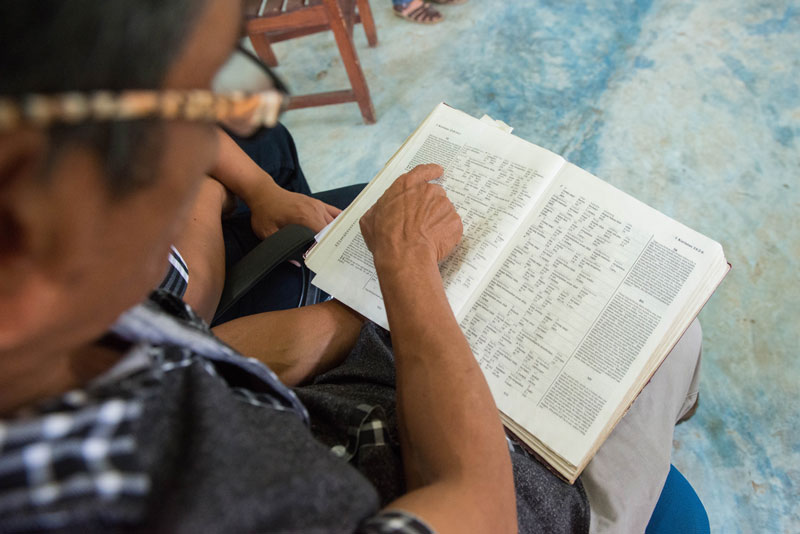
Applying the Scriptures
One of the things translation teams in Indonesia are most grateful for is the way Bible translation has led to increased relationship between church leadership and the communities they serve.
As the leaders of the church in Ambon have become more connected, they’ve noticed something about their congregations: They are hurting.
Years ago, there were riots and conflict in Ambon. Some areas were devastated by the violence, and the evidence of torn-down walls is still visible. Less visible are the wounds left in Ambon’s people; many of them still have not emotionally recovered.
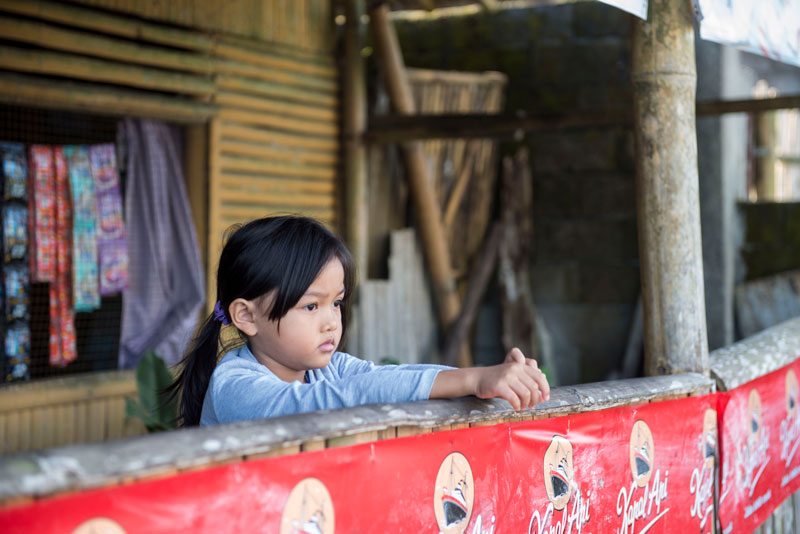
Here in the U.S., we often feel like we need to leave our traumas, heartache and wounds at the door when we go to church; we don’t dare carry them inside with us. But on Ambon Island, the church wants to help its people face their struggles and find healing together.
The church leaders in Ambon asked the translation team if they had any tools to help. Stephanie was overjoyed to be able to offer their Scripture Engagement ministry.
“Scripture engagement is the area that really gets me excited, because that’s where the translation really meets the people,” she said.
“It’s the activities we do that actually bring people to interact with the Word.
“We hold workshops that help walk people through Scriptures. They use Scriptures in Ambonese Malay and stories about different types of circumstances that help people relate … [God’s Word] to the trauma in their own lives.”
The trauma healing workshops are conducted by Matt Connor, a Wycliffe USA ethnomusicologist, and Olce Saleky Akse, an Indonesian Scripture engagement specialist.
One man who participated in a trauma healing workshop had been marginalized his whole life because he was lame. He was able to bring that up with the group and begin to find healing. Today they’re seeing reconciliation between people, and God’s Word is taking root in their hearts.
Olce remembers teaching participants how to create devotionals using the translated Word: “They said, ‘Wow, this is God talking directly to me.’ Before that point they had never heard God’s Word in Ambonese. It’s the language that is closest to their hearts. It’s important to me because my life has changed as a result of understanding God’s Word. And so I think other people need to be able to have that experience too.”
Finding Freedom
Thanks to the translated Word, churches throughout Indonesia are embracing the Scriptures and the beauty of how God created their culture.
In Ambon, for the first time in the history of the Protestant Church of Maluku, once a month the church will hold services entirely in the region’s local languages.
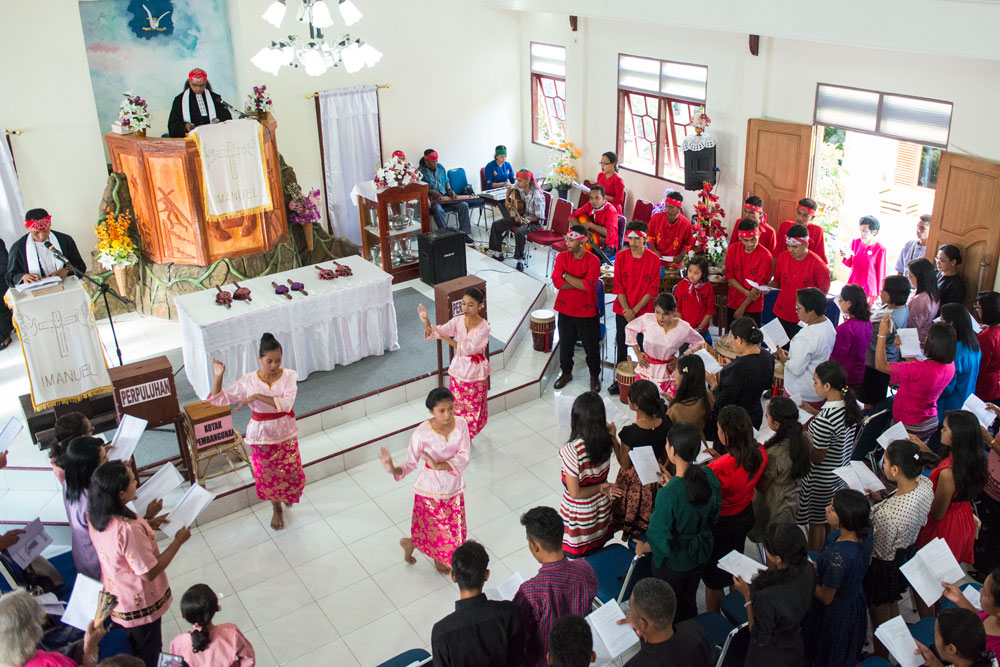
Find out how your church can partner to help churches around the world to get Scripture in their language.



